Search
Did you mean: Cimon?
Search Results
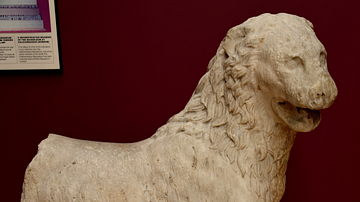
Image
Statue of a Lion from Halicarnassus
This marble statue of a lion came from the Mausoleum at Halicarnassus, Bodrum, in modern-day Turkey. Late Classical Period, circa mid-4th century BCE. (Museum of Archaeology, Istanbul, Turkey).

Image
Delos Lion Sculpture
A lion sculpture in marble from the island of Delos in the Greek Cyclades, 7th century BCE (this is a replica as the originals are now in the museum of Delos). Orignally nine or even as many as 16 lions lined an avenue in the sanctuary complex...
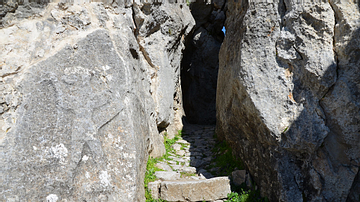
Image
Hittite relief of a Winged Lion-Headed Demon at Yazilikaya
Entrance to Chamber B of the Yazilikaya Hittite Rock Sanctuary near Hattusa (13th century BCE) with a relief of a winged, lion-headed demon.
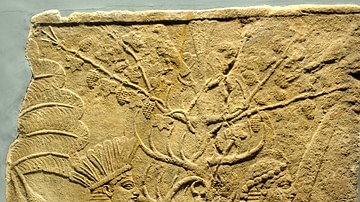
Image
Musicians with a Tame Lion
Gypsum wall panel relief depicting two musicians, playing a harp and a lyre. One is a young man wearing a feather headdress and the other is a woman wearing a fillet of large beads. A tame lion beneath palms and cypresses appears. The whole...
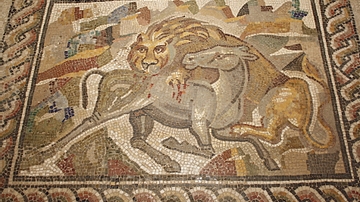
Image
Hunting Lion Mosaic, Tarentum
A panel from a larger floor mosaic depicting a hunting lion, Tarentum, southern Italy, Late 2nd, early 3rd century CE. (National Archaeological Museum of Taranto, Italy)
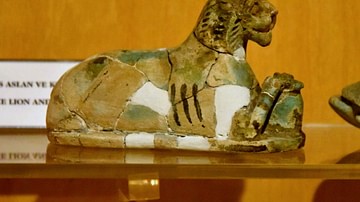
Image
Faience Lion from Megiddo
A statuette of a lion. Faience. Early Iron Age, 1200-900 BCE. From Tel Megiddo, in modern-day Israel. (Museum of Archaeology, Istanbul, Turkey).
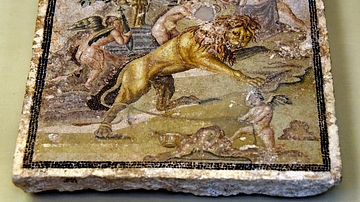
Image
Mosaic Panel Depicting a Lion Taunted by Cupids
This panel was part of a mosaic pavement. It depicts a lion taunted and bound by cupids. The mosaicist has used very small tesserae (cubes of stones) to achieve the effect of a painting. This technique is known as opus vermiculatum. Formerly...
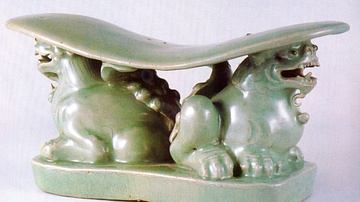
Image
Celadon lion Pillow, Goryeo Dynasty
A celadon pillow in the form of two lions. 12th century CE, Goryeo Dynasty, Korea. (Leeum, Samsung Museum of Art, Seoul, South Korea)
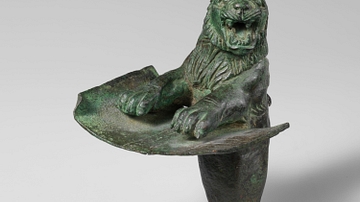
Image
Hurrian Lion Foundation Peg
Cast in copper alloy, this Hurrian foundation peg dates to circa 2200-2100 BCE. It measures 11.7 cm high x 7.9 cm wide. Artist unknown, from Syria. (Metropolitan Museum of Art, New York).
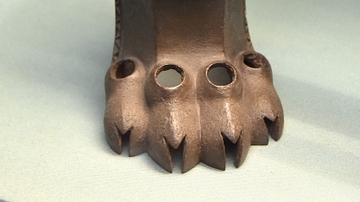
Image
Bronze Lion's Foot from Urartu
This large foot was probably fit into onto the legs of a table or bed. The decoration on the front is an Anatolian version of the Egyptian winged sun-disc. This would have originally been inlaid with knuckles and claws. From Toprakkale, Eastern...